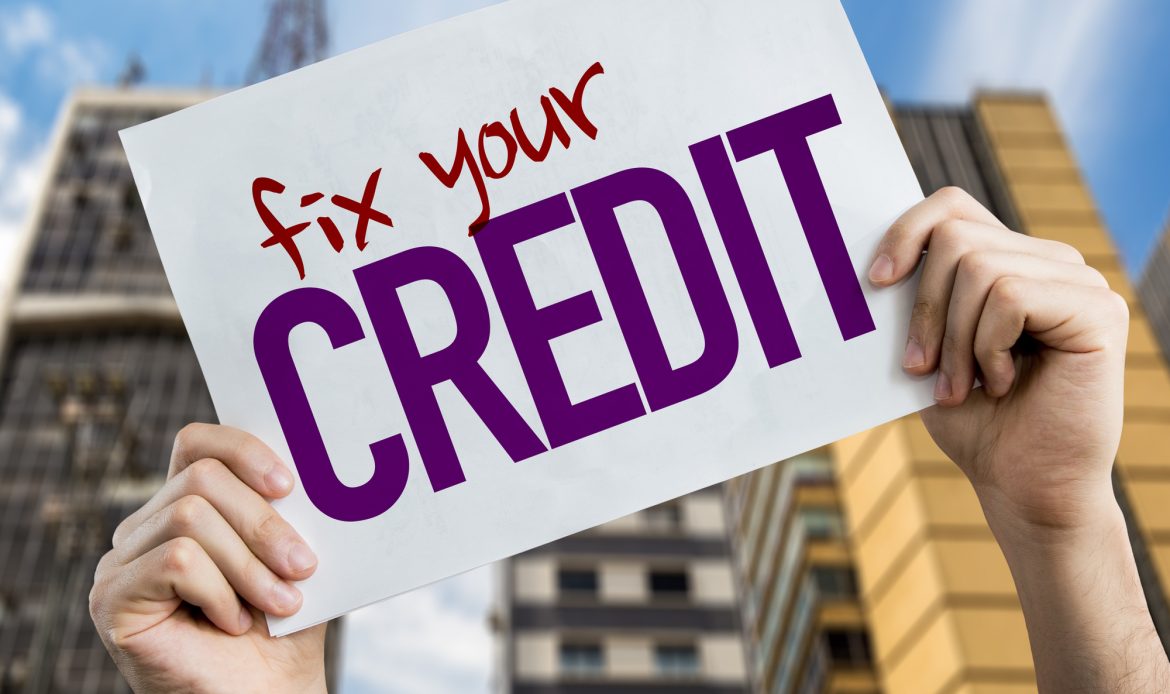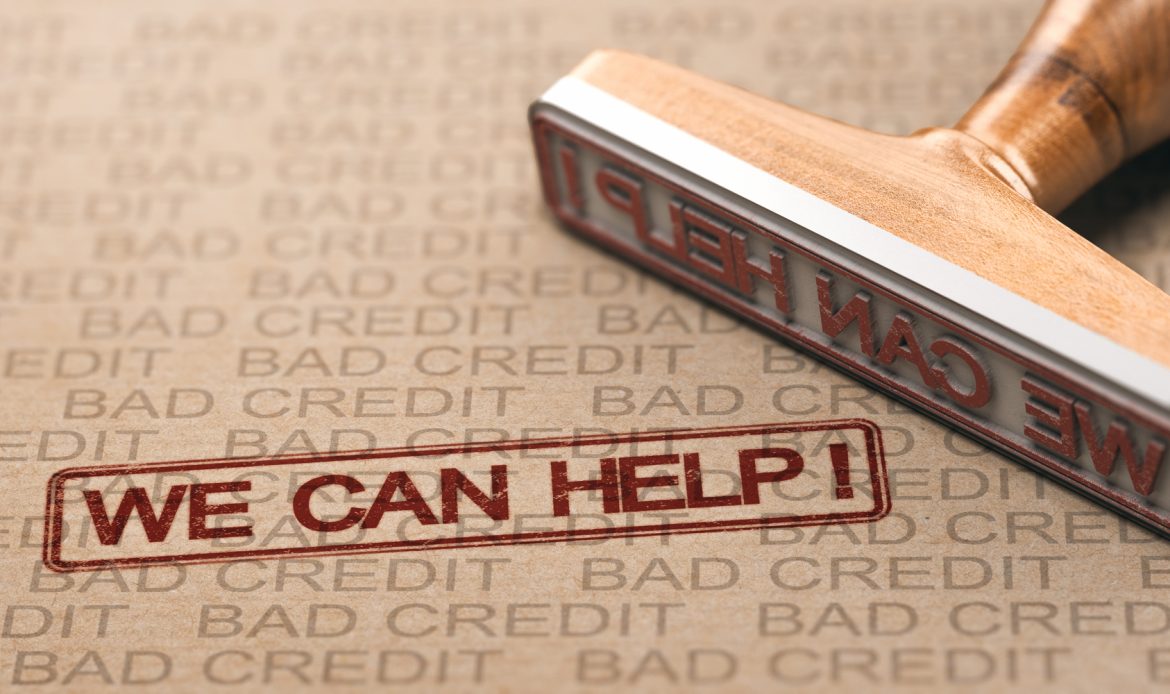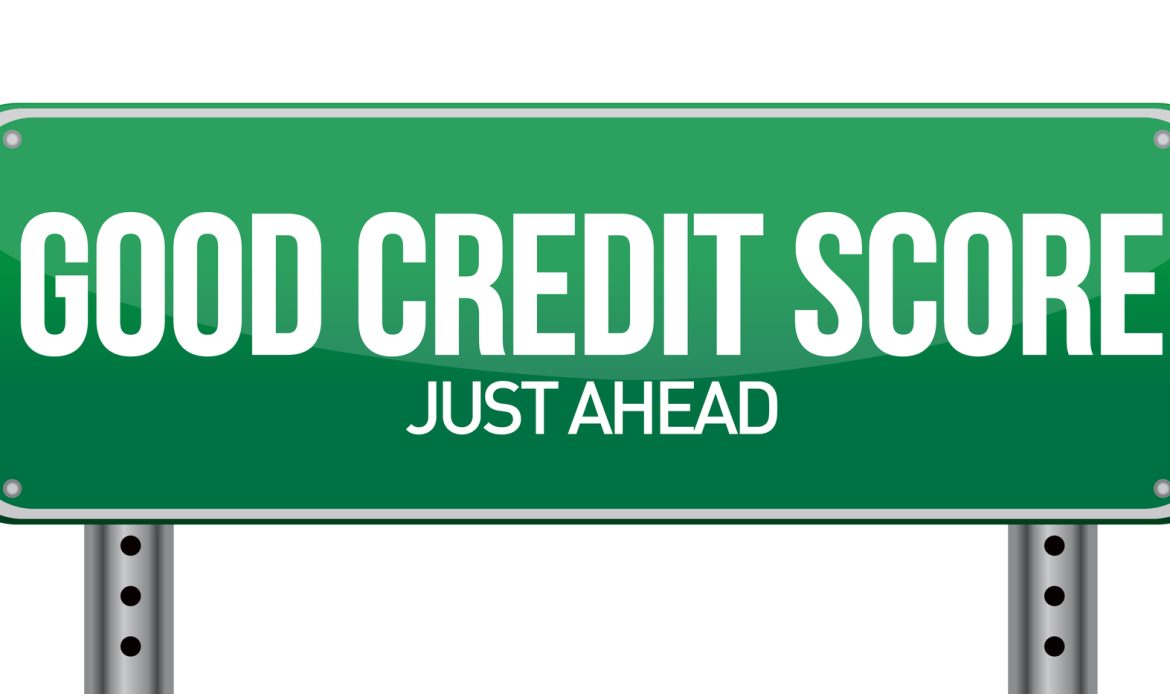Having a bad credit score can feel like carrying a heavy weight. It might mean trouble getting loans, higher interest rates, or even challenges when trying to rent an apartment. You’re not alone if you are wondering how to fix bad credit, and your score is dragging you down – many people face the same struggle.
Did you know that your payment history makes up 35% of your credit score? This means paying your bills on time could be a powerful way to boost those numbers.
Our guide dives into practical steps to help repair damaged credit and clear the path towards financial freedom.
Together, we’ll explore the do’s and don’ts to get your credit back on track. To get started you can check your credit score with Omniwatch. OmniWatch also offers identity theft protection.
Get ready for some savvy advice!

Key Takeaways
- Check your credit report for errors and dispute any mistakes to improve your score.
- Always pay your bills on time and keep your credit utilization ratio below 30% to show you can handle debt well.
- Keep old credit accounts open because they help build a long-term history, which is good for your credit score.
Understanding What is a Bad Credit Score?
A bad credit score is when your score falls below 580. It makes lenders think you have trouble with money. This score comes from how you’ve handled loans and credit cards in the past.
Things like late payments or not paying at all can hurt it a lot.
Your credit report shows this score, and it’s managed by companies called credit bureaus.
There are 3 main credit bureaus Equifax, Experian, and TransUnion. You should check what they say about you because mistakes happen often. Check your credit score using OmniWatch.
One study showed that errors were found in reports for 1 out of every 4 people! If there are wrong things on your report, like debts you didn’t know about or payments marked as late when they were on time, fixing them can help your score improve.
How to Fix Bad Credit Step 1 – Review Credit Reports
Reviving your credit health involves strategic steps that are both clear-cut and actionable.
Let’s explore the practical strategies you can apply to navigate out of the depths of bad credit and sail toward a more secure financial future.
Having good credit is important. Sometimes, credit reports have mistakes that can hurt your score. Here’s how you can fix those errors and dispute them if needed:
- Start by getting a copy of your credit report from each of the three major bureaus: Equifax, Experian, and TransUnion.
- Look carefully through each report for any errors. This might be wrong addresses, misspelled names, or accounts you don’t recognize.
- If you spot an error, write a dispute letter to the credit bureau. Clearly explain what is wrong and why it’s a mistake.
- Send any proof you have with the letter. This could be bank statements or bills that show the correct information.
- Mail your dispute letter by certified mail. Ask for a return receipt so you know the bureau got it.
- Give the credit bureau time to look into your dispute. They usually have 30 days to respond.
- Check back to see if they fixed your report. The bureau must tell you what they find out.
- If one error appears on all three reports, send a dispute letter to each bureau. Each one needs to know about the mistake so they can fix it.
How to Fix Bad Credit Step 2 – Regular Payment of Bills
Paying your bills on time is a big part of fixing bad credit. It counts for 35% of your credit score.
Setting up autopay helps a lot. With autopay, money comes out of your bank account automatically to pay bills like loans and credit card debt.
Sometimes, you can’t use autopay for certain bills. Try to pay those as soon as you get them. This way, you won’t forget and get a late fee.
Staying on top of your payments shows that you are good at managing money.
It helps make your credit score better over time.
How to Fix Bad Credit Step 3 – Maintaining Credit Utilization Ratio Below 30%
Keep your credit utilization ratio under 30%. This means you should not use more than 30% of your total credit limit.
For example, if you have a credit card with a $1,000 limit, try to keep your balance below $300.
Doing this shows that you handle your money well and can help raise your credit score.
If your credit cards are often maxed out, it’s time to pay some of that debt off. Lowering what you owe lowers your utilization rate.
Use less of the available credit on all of your cards together and on each card separately to boost your score even more.
How to Fix Bad Credit Step 4 – Paying Down Other Debts
Paying off what you owe can help fix your bad credit score. Tackle debts with high interest first, like credit card bills, using the debt avalanche method.
This means you put extra money towards these debts before others.
It saves you money on interest over time. For some people, paying off small balances first works better; this is called the debt snowball method, and it gives a feeling of success quickly.
If you have a lot of different bills, think about getting one loan to cover them all.
Maybe you could refinance your home to do this. This way, you won’t get hit by high rates on revolving accounts like credit cards.
Plus, making just one payment instead of many can simplify budgeting and keep your plan on track.
How to Fix Bad Credit Step 5 – Get Guaranteed Approval Credit Cards
Fixing bad credit requires a strategic approach, and obtaining guaranteed approval credit cards can be an effective step. When you have little to no credit history, these cards can be a viable option to start building your credit.
The key is to look for cards that offer guaranteed approval, meaning they don’t require a strong credit history for approval. These cards often come with higher interest rates and lower credit limits, but they are instrumental in establishing a credit footprint.
You see our top picks for these types of credit-building credit cards here.
When you get such a card, it’s crucial to use it responsibly. This means making small purchases that you can pay off in full each month. By doing so, you avoid accruing interest and demonstrate to lenders that you can manage credit effectively. Consistently making on-time payments will positively impact your credit score.
Additionally, monitor your credit score regularly to track your progress. Use the card for a period, and as your credit improves, you can apply for cards with better terms. This gradual approach is essential in building a strong credit history from scratch.
Remember, patience and responsible credit behavior are key in this journey.
How to Fix Bad Credit Step 6 – Keeping Old Credit Cards Open
Having old credit cards can be a good thing for your credit score. It shows you’ve been using credit well for a long time. This history is a big chunk of what makes up your score. Keeping these cards open helps show that you’re good at managing different kinds of credit over the years.
Closing an old card might hurt your score because it shortens your credit history. So, consider keeping the card open even if you don’t use it much. Make sure no yearly fees are eating up your money, and try to use the card sometimes so the company doesn’t close it for not being used.
How to Fix Bad Credit Step 7 – Avoiding Unnecessary Credit
Taking out new credit can hurt your score. Companies do a hard credit check when you apply for a credit card or loan. This check can lower your score a little bit. If you do this a lot, it adds up and brings down your score more.
Using a Tool like OmniWatch also allows you to lock credit checks so you have full control when checks are done on your identity.
Keep using the old credit cards you have instead of getting new ones. This shows that you can handle credit for a long time. It helps make your credit history stronger which is good for your score.

More Considerations for Fixing Bad Credit
Credit repair companies can be a big help if you want to fix your credit. They look at your credit report, find mistakes, and talk to credit bureaus or creditors for you. These companies know the rules about fixing credit reports.
So they might get results faster than if you did it all by yourself.
If you have things on your report that are wrong and hurt your score, a credit repair company could work with you. They take steps to remove these bad marks from your report. This helps because good reports mean better scores, making life easier when borrowing money or getting insurance.
Remember, though: not every negative detail can be taken out just because it’s unwanted; only errors should be disputed and possibly removed.
How Long Does It Take to Improve Your Credit?
Fixing your credit can be like running a long race. It takes time for changes to show up. Usually, it can take a few weeks to several months before you see your score go up. This happens because businesses that lend money report to the credit bureaus at different times.
You might have to wait even longer if you’re working on big problems like paying off debt or fixing mistakes. For some things, like missed payments or collections, it could take years for them to fully fade from your record.
But don’t let that stop you! Each step you take makes your credit health better slowly over time.
Maintaining a Good Credit Score
Maintaining a good credit score is an ongoing process that requires diligence and an understanding of how credit works—stay informed to keep your financial health at its best.
Regular Monitoring of Your Credit Score
Keeping an eye on your credit score is smart. This can help you spot mistakes and see how your credit improves.
- Take advantage of reports from Equifax, Experian, and TransUnion. With a service like OmniWatch you can get regular updates every month.
- Spot errors quickly. If something looks wrong, you can fix it fast before it hurts your score.
- Watch your progress. Seeing your score improve over time is great for staying on track with good credit habits.
- Use tools wisely. Some banks or credit card companies offer monitoring if you have an account with them.
- Protect against identity theft. Regular checks can alert you to any suspicious activity in your name.
- Stay informed about factors that affect your score, such as debts and payment history, so you know what to work on.
Avoiding New Hard Inquiries
Hard inquiries happen when you apply for new credit. Think about a loan or a credit card. Each time you do this, someone checks your credit report deeply. These checks can lower your score a little bit.
So, try not to ask for new credit often.
If you need to borrow money or get a new card, be smart about it. Only apply when it’s really important. This way, you won’t have many hard inquiries on your record and your score stays healthier.
Seeking Help in Building Credit
If you need help to build your credit, think about talking to a credit counselor. A good credit counselor can give you tips and tools that fit your situation. They work at credit counseling agencies and know how to deal with debts and scores.
Picking the right one is key; always choose someone who has respect and works for a known agency.
Another way is to use products like secured credit cards. These cards are special because they make sure you can’t spend more money than what’s already paid onto them. This means less risk for the bank and helps you show that you can manage money well.
Making regular payments on this card shows lenders that you’re reliable, which could help improve your score over time.
The Impact of Credit Mix
Diversifying your credit mix can boost your credit score. This means having different types of loans and lines of credit. For example, you might have a student loan, a car loan, and a credit card.
Each type shows you can handle different kinds of borrowing.
Lenders like to see a mix because it suggests that you’re good at managing money. Landlords, insurance companies, and jobs might also look at your mix to decide if you’re reliable with finances.
So, it’s smart not just to stick with one kind of loan or card but to have several kinds as long as you can keep up with the payments.
Importance of Paying Balances on Time
Paying your bills on time is one of the best things you can do for your credit. This shows you are good at managing money and keeps your score high. Late payments can hurt your score a lot, making it harder to get loans with low interest rates.
To make sure you pay on time, use tools like autopay for regular bills. For other expenses that pop up, try to take care of them as soon as possible. Good habits like these keep debt from building up and help avoid extra fees or higher rates later on.
Consideration of Credit Repair Services
Thinking about hiring credit repair services can be a big step if you’re struggling with a bad credit score. The Credit Pros and other companies offer help to fix your report by finding mistakes and fighting to have them removed.
This might boost your scores faster than if you did it all on your own. It’s important to remember these services charge setup fees and monthly fees.
It also pays to know that while these companies are skilled at identifying problems with credit reports, fixing those issues is something you could potentially do yourself for free.
You have the right to dispute any errors directly through the credit bureaus or even seek assistance from a credit counseling agency, which may give this service at no cost.
If your budget is tight or if you prefer hands-on management of your finances, consider tackling disputes on your own before spending money on outside help.

Frequently Asked Questions – How to Fix Bad Credit
Q: How can I fix my bad credit?
A: To fix your credit, you can start by checking your credit report for any errors and disputing them. You can also work on paying down credit card balances, reducing your credit utilization rate, and making all future payments on time.
Q: What is a secured credit card?
A: A secured credit card requires a cash deposit as collateral, which establishes your credit limit. This can be a good option for rebuilding credit.
Q: What are the steps I can take to improve my credit score?
A: You can improve your credit score by making on-time payments, keeping credit card balances low, and avoiding opening too many new credit accounts at once. Additionally, checking your credit report regularly for errors and addressing them can also help.
Q: How do credit repair companies work?
A: Credit repair companies work by reviewing your credit report for inaccuracies, disputing any errors, and working with credit bureaus to remove negative items. However, it’s important to be cautious when choosing a credit repair company and to be aware of the potential for scams.
Q: What is considered a good credit score?
A: A good credit score typically falls within the range of 670 to 850, although specific score ranges may vary depending on the credit scoring model used.
Q: How does applying for new credit affect your credit score?
A: When you apply for new credit, it can result in a hard inquiry on your credit report, which may temporarily lower your credit score. However, if you are approved and manage the new credit responsibly, it can ultimately have a positive impact on your credit.
Q: How can I add to my credit?
A: You can add to your credit by maintaining a mix of credit accounts, such as installment loans and credit cards, and by using them responsibly. Additionally, being added as an authorized user on someone else’s credit account can also help you build credit.
Q: Can a nonprofit credit counseling agency help improve my credit?
A: Yes, a nonprofit credit counseling agency can provide assistance with creating a budget, managing debt, and developing strategies to improve your credit. They can also work with creditors to negotiate lower interest rates and payments.
Q: How does the credit utilization rate impact my credit score?
A: The credit utilization rate, which is the percentage of available credit that you are using, is an important factor in your credit score. Keeping this rate low can positively impact your credit score, while high utilization can have a negative effect.
Q: What are some ways to repair my credit?
A: To repair your credit, you can consider options such as debt consolidation, working with a credit counselor, and making sure that positive information is reported to the credit bureaus. It’s also important to address any errors on your credit report and to avoid behaviors that could further damage your credit.
Conclusion
Fixing your credit score starts with knowing what’s wrong. Make sure to check for mistakes and pay bills on time. Use less than 30% of your credit and keep old cards open. Remember, these steps can really change your financial life for the better.
Take charge today, your future self will thank you!

